ACUPUNCTURE FOR CANCER SURVIVORS
When a person receives a cancer diagnosis, they are routinely offered a cocktail of treatment options with curative or life-prolonging intent. These may include interventions such as surgery, radiotherapy, and/or systemic anti-cancer treatments (SACT) such as chemotherapy or immunotherapy. Adjuvant treatments, such as hormonal therapies, may also be taken for a long time after initial cancer treatments end.
These treatments are life-saving. They also may be associated with unpleasant and distressing side effects, which may continue long after active cancer treatment ends. Known as “consequences” of cancer treatment, they vary depending on the type of cancer and the types of treatments received. Up to 25% of cancer survivors experience long-term consequences of cancer and its treatments. Some typical examples of physical consequences include:
- Fatigue
- Pain, including aching joints and muscles, chemotherapy induced peripheral neuropathy (CIPN), post-surgical pain, general cancer pain
- Cancer treatment-related hot flushes and night sweats
- Lymphoedema
- Dry mouth and radiation induced xerostomia
- Bowel and bladder problems
- Sleep problems
- Poor concentration.
There may also be emotional consequences, such as:
- Depressed mood
- Anxiety
- Fear of recurrence
- Lack of motivation
- Body image concerns.
These are a few examples of the many consequences that may be experienced, either in the short-term during and soon after cancer treatment ends, or longer term (including many years after the end of treatment).
How can acupuncture help?
Acupuncture is a safe, evidence-based therapy recommended by oncologists to help relieve complex consequences of cancer treatment:
The evidence base for acupuncture is sufficiently robust for prestigious oncology organisations to recommend acupuncture as a treatment option for many conditions, including aromatase inhibitor related joint pain, chemotherapy induced peripheral neuropathy, general cancer pain, anxiety, depression and mood disturbance, fatigue, hot flushes and night sweats. It can also be used for improving quality of life. See the Society of Integrative Oncology guidelines for more information: https://integrativeonc.org/practice-guidelines/guidelines .
Acupuncture is a safe intervention with few serious adverse events. Those that are reported are minor and include bruising/transient bleeding at the needle site, drowsiness, headache, local skin irritation, light-headedness.
Acupuncture is a non-pharmacological treatment option:
When used for pain management, acupuncture can reduce the need for analgesics.
Acupuncture’s effects sometimes equal the effectiveness of conventional drugs, and do not have the side effects or rebound (symptoms returning) effect when treatment ends.
Acupuncture is a useful treatment option for many conditions where no effective pharmacological intervention is available.
It can be used in the multi-disciplinary care of people living with long-term conditions resulting from cancer and its treatments.
Acupuncture can support cancer survivors in the transition from cancer treatment to the “new normal” of life after cancer treatment:
It can support recovery, improve health and wellbeing, and facilitate a return to active living.
It can help cancer survivors develop the ability to cope, to improve the immune system, and to develop resilience.
Acupuncture can offer cancer survivors even more!
As well as offering cancer survivors choices in how to manage conditions, acupuncture can be a catalyst for a process of transformation and profound renewal. Many cancer survivors who experienced complex consequences of cancer and its treatments report dramatic improvements in their lives following acupuncture.
It can increase energy, improve motivation, and facilitate improved long-term health and well-being. Many cancer survivors say: “acupuncture has given me my life back!”
At the London Acupuncture Clinic, we offer personalized acupuncture treatments that are tailored to your individual needs. In our Cancer Survivorship Clinic, our qualified acupuncturist will assess your condition and develop a treatment plan that is safe, effective, and comfortable.
We use only sterile, single-use needles and follow strict safety protocols to ensure your safety and well-being. Our acupuncturist is registered with the Professional Standards Authority, an independent body that ensures that members of the public can choose the services of practitioners who are on a register that has been independently assessed and approved. The PSA Quality Mark reassures the public that registrants meet high standards of professional practice.
If you’re ready to take control of your cancer survivorship journey and improve your quality of life, we invite you to book an appointment at our Cancer Survivorship Clinic today. Our experienced acupuncturist will work with you to develop a personalized treatment plan that addresses your unique needs and concerns. Contact us today to learn more about our services and how acupuncture can help you thrive, not just survive, after treatment for cancer.
Recently published, she has co-authored the first international, multidisciplinary, peer-reviewed recommendations for the safe practice of acupuncture in integrative oncology. de Valois, B., Young, T., Zollman, C. et al. Acupuncture in cancer care: recommendations for safe practice (peer-reviewed expert opinion). Support Care Cancer 32, 229 (2024) which can be viewed here
At present this service is only available in our Wimpole Street clinic with Beverley de Valois. For further information click here for our leaflet.
